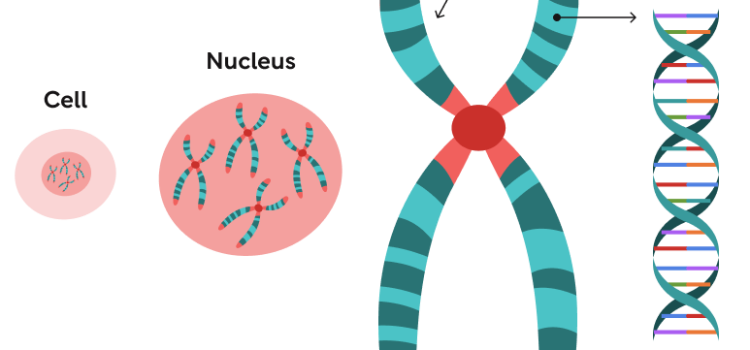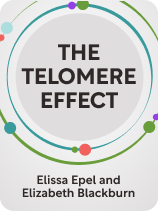

This article is an excerpt from the Shortform book guide to "The Telomere Effect" by Elissa Epel and Elizabeth Blackburn. Shortform has the world's best summaries and analyses of books you should be reading.
Like this article? Sign up for a free trial here.
What dictates how fast you age? What are telomeres and why are they important?
Elizabeth Blackburn and Elissa Epel explain that telomeres are repetitive DNA sequences coated in protein. They act as protective caps on the ends of your chromosomes—the parts of your cells that contain genetic information, made of many different genes coiled up like tightly wound threads.
Let’s look at the role of telomeres in our bodies and how they play into the aging process.
Telomeres Protect DNA During Cell Division
To help understand what telomeres are and why they’re important, the authors explain that telomeres protect your genetic information (your DNA) during cell division.
Your cells reproduce themselves by dividing, a process called mitosis. During mitosis, a cell copies its chromosomes and then splits into two new cells, with each cell getting one set of chromosomes. However, the cell loses small pieces of DNA from the ends of its chromosomes during this copying process, which is why the telomeres are necessary; you only lose bits of those repetitive, meaningless DNA sequences, instead of having your actual genes get damaged.
(Shortform note: Throughout this book the authors assert that longer telomeres are better than shorter ones—that the longer your telomeres are, the longer you stay healthy. However, that may not be the entire story. One scientific study found that people with longer telomeres are not significantly healthier than those with shorter telomeres. In fact, the greatest difference was only in what types of diseases those groups tended to develop: People with shorter telomeres were more prone to heart disease and Alzheimer’s, while people with longer telomeres were more likely to develop cancer.)
Furthermore, the authors explain, mitosis is a crucial biological process. This is because your cells naturally die over time, and they can also become damaged due to injury, illness, or environmental toxins like car exhaust. In fact, this is happening constantly; the reason you stay healthy in spite of all this harm is because your cells continually divide in order to replace the dead and damaged ones.
(Shortform note: Mitosis (cell division) isn’t just important for humans: It’s a necessary function for nearly every species on Earth except bacteria. Mitosis serves three purposes: First, it allows organisms to grow and develop by creating new cells for their bodies. Second, it makes healing possible, as we’ve discussed already. Finally, some species rely on mitosis for asexual reproduction—essentially creating clones of themselves—through fragmentation, budding, or other means.)
You Age Because Your Telomeres Get Shorter
Mitosis is necessary to keep you healthy, and telomeres allow your cells to undergo mitosis safely. However, Blackburn and Epel emphasize that your telomeres aren’t endless: Each time one of your cells divides, the telomeres inside that cell get a little bit shorter. When a cell’s telomeres get too short, that cell enters senescence, which means that it’s too old to keep reproducing.
Senescent cells are responsible for many of the harmful effects of aging. For instance, these worn-out cells constantly send out chemical signals that cause inflammation, leading to ailments like arthritis. As more and more senescent cells build up in your body, you start to experience the pains and frailty of old age.
| Alternate Theories of Aging Aside from the theory of shortening telomeres that Blackburn and Epel espouse, there are several other theories about why people age. One popular theory called the DNA Damage Theory of Aging suggests that aging occurs due to the accumulation of progressive damage in our DNA over time. This genetic damage could result from random mutations, radiation (like from sunlight), environmental pollution, and countless other potential causes. As this DNA damage keeps building up, it eventually reaches a point where our cells can no longer function correctly, leading to the breakdown and aging of our bodies. Another theory gaining popularity comes from biologist David Sinclair (Lifespan), who’s developed what he calls the Information Theory of Aging. His theory states that we age due to an accumulation of epigenetic damage over time. The epigenome consists of proteins that wrap around the DNA and control which genes are expressed or “turned on” in each cell. Therefore, the epigenome controls how our bodies use the genetic information encoded in the DNA. According to Sinclair’s theory, it’s the changes and damage to this epigenetic layer of control that drives the aging process, not mutations in the underlying DNA code itself. |

———End of Preview———
Like what you just read? Read the rest of the world's best book summary and analysis of Elissa Epel and Elizabeth Blackburn's "The Telomere Effect" at Shortform.
Here's what you'll find in our full The Telomere Effect summary:
- Why people suffer the effects of old age
- How negative thinking and social isolation speed up the aging process
- Specific habits you can adopt to stay young longer






